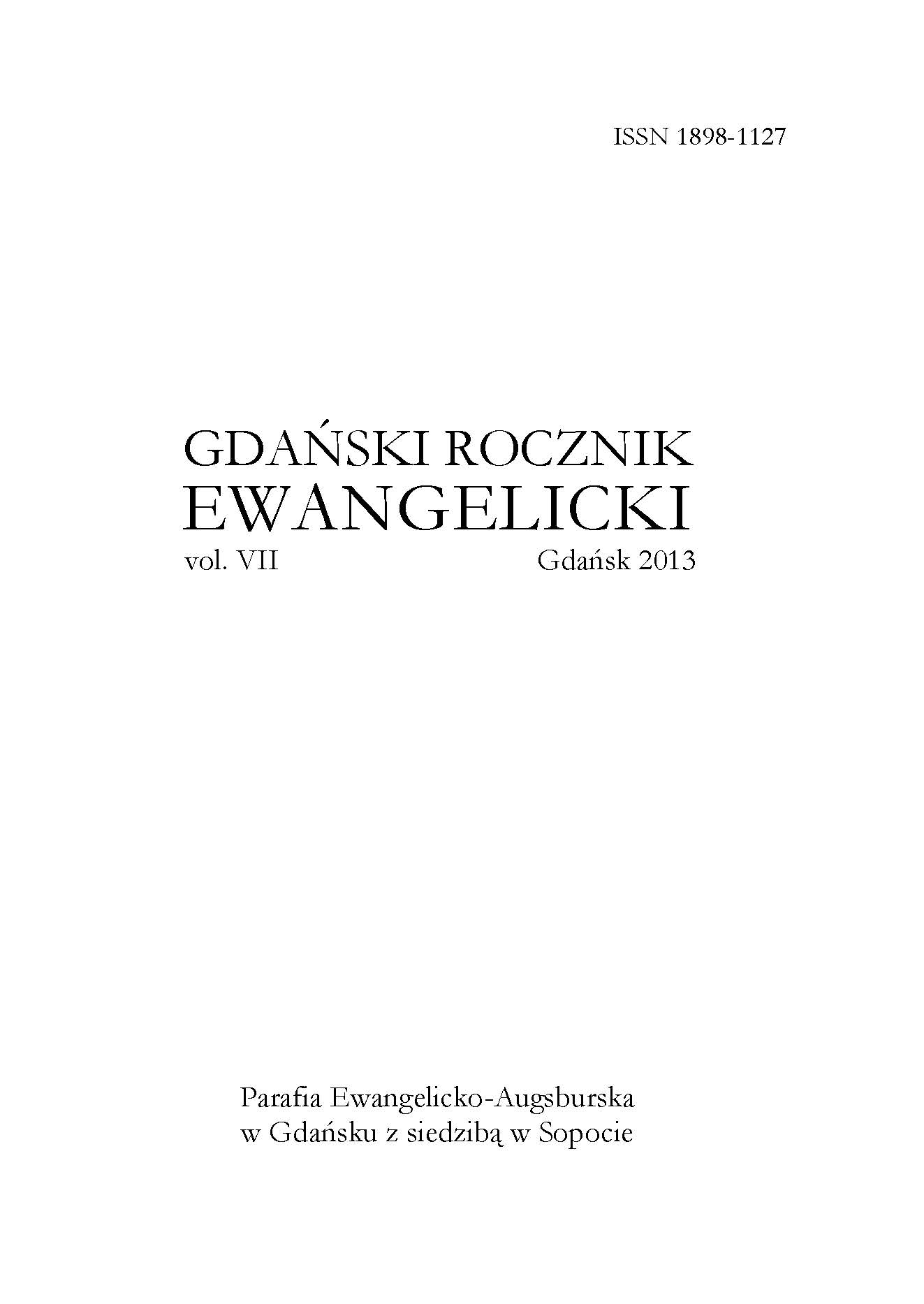Der gemeinsame reformatorische Grund des Glaubens. betrachtet im Tandem zwischen der Union Evangelischer Kirchen (UEK) und der SELK
The Reformers' Common Ground in Faith
Author(s): Henning TheißenSubject(s): Christian Theology and Religion
Published by: Parafia Ewangelicko-Augsburska (Luterańska) w Gdańsku-Sopocie
Keywords: Faith; Eudemonism; Reformation theory; United Churches; autonomous Lutheran churches
Summary/Abstract: The reflections in this paper were originally delivered to the joint study group of the Union of Evangelical Churches (UEK) and the Autonomous Evangelical-Lutheran Church (SELK) at Oberursel (Germany) on September 26th, 2013. The topic was dealt with by representatives from either church, with the present paper being complemented by a presentation by Werner Klän. The present paper discusses six theses: Thesis #1: To claim God's trinitarian work as a common ground in faith which the Reformers share presupposes that the unity of this ground does not exclude a variety of ecclesial entities claiming the heritage of the Refor-mation. Thesis #2: The concept of confession embraces two different aspects. Ex-ternally oriented, the confession of a given community appears as doctrine of-fering arguments. Internally oriented, the confession of a given community is a cultural factor which thoroughly determines the life of the community. Thesis #3: There is a twofold meaning in speaking of a „ground in faith“ depending on whether one refers to the doctrinal or to the cultural aspect of confession. The doctrinal aspect requires dogmatic investigation, while the cultural aspect is best understood in ethical perspective. Thesis #4: Considering faith in ethical perspective presupposes a eudae-monistic concept of ethics in the sense of a hierarchy of goods required for realizing good life. This hierarchy of goods contains both the individual rea-sons why people are convinced by faith and the ethos which a given com-munity of followers of faith shares. Thesis #5: In ethical perspective faith is grounded in a particular way of dealing with goods which can be defined as the highest good consisting in freedom even in the case of (subordinate) goods being denied or taken away from the followers of faith. Thesis #6: The common ethical ground in faith is confidence (fiducia) in which the followers of faith put their personal life and ethos at stake to gain it again through confidence.
Journal: Gdański Rocznik Ewangelicki
- Issue Year: 2013
- Issue No: 7
- Page Range: 308-321
- Page Count: 13
- Language: German

